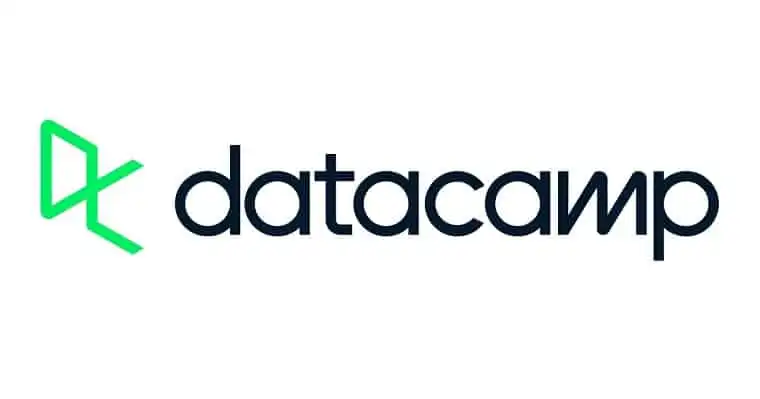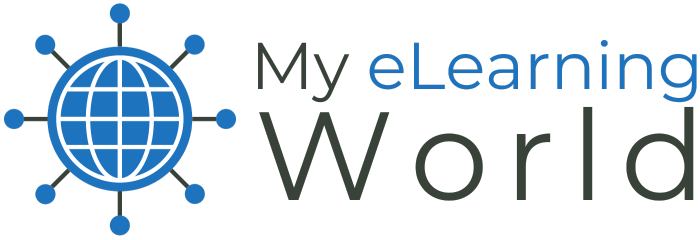With the best online machine learning courses, you can gain valuable, cutting-edge skills and knowledge to help you build a thriving career in this growing field.
Machine learning is a branch of artificial intelligence that deals with the design and development of algorithms that allow computers to learn from data.
As machine learning is increasingly being used in a wide range of applications, including image recognition, natural language processing, and predictive analytics, there is a growing demand for machine learning experts.
The good news is you can learn machine learning on your own time from the comfort of home, thanks to online courses from top platforms, like Datacamp.
Of course, not all machine learning course programs online are created equal, and with dozens upon dozens of courses to choose from, it can be tough to know where to start.
That’s why we’ve put together a list of the best online machine learning courses, to help you find the right one for your needs.
We’ve ranked the top paid and free machine learning classes online based on content, instructor, and price.
This guide has been totally updated for 2023 to include the best machine learning courses currently available at this time, so you can be confident that you’re getting the latest, most helpful information.
Disclosure: Some of the links in this article are affiliate links, meaning at no additional cost for you, we might get a commission if you click the link and purchase.
How We Chose the Best Machine Learning Courses
With so many courses out there teaching machine learning skills, we spent a long time reviewing options and curating a list of the classes we believe are the best in class.
From free courses teaching basic machine learning concepts to advanced courses covering more complex topics, we looked at dozens of classes, judging each of them on the following:
- Course content–We looked at the overall curriculum and individual lessons in each class to make sure the course content was comprehensive, current, and accurate.
- Instructor credentials–We examined each instructor’s experience and qualifications to ensure they had the skills needed to teach machine learning effectively.
- Student reviews–While we heavily factored in our own experiences and opinions on the courses we looked at, we also combed through hundreds of student reviews to get an unbiased perspective.
- Overall value–Some courses come with a hefty price tag, while others are completely free. But cheaper doesn’t always mean better. We wanted to weigh the actual value you get for your money, time, and effort.
After going through this in-depth process, we came up with a list of what we believe are the 7 best online training courses for machine learning that you can take at your own pace.
What are the Best Online Machine Learning Courses?
Here are our picks for the top machine learning classes you can take online in 2023…
1. Machine Learning For Everyone (Datacamp)
 Machine Learning For Everyone (Datacamp)
Machine Learning For Everyone (Datacamp)
Learn the non-technical aspects of machine learning and gain an understanding of the terminology and the process of how things work with the help of machine learning.
Price
Duration
2 hours on-demand video
In this course, you will learn non-technical aspects of machine learning. It is designed for beginners so that they can understand the terminology and the process of how things work with the help of machine learning.
There are no prerequisites for this course, nor does it require any programming knowledge.
Think of this as a true “101 level” course that will serve as an intro to this new topic and help you get on the path to learning much more about it.
Machine Learning for Everyone is available at Datacamp, the top platform for online courses in the tech space. It is designed by Lis Sulmont, Hadrien Lacroix, and Sara Billen and includes 12 videos and 36 exercises. More than 118k students take this course across the world, and it has an average rating of 4.6 out of 5 based on more than 26k reviews.
What You Will Learn
- What is machine learning?
- The relation between data science and Artificial Intelligence is established.
- Decodes key machine learning terms.
- Introduces model-building machine learning procedure.
- Introduction to neural networks
- Further use of two deep learning applications: computer vision and natural language processing.
2. Introduction To Deep Learning In Python (Datacamp)
 Introduction To Deep Learning In Python (Datacamp)
Introduction To Deep Learning In Python (Datacamp)
This online course teaches the basics of neural networks and how to build deep learning models using Keras 2.0.
Price
Duration
4 hours of on-demand video
Python is a new and advanced programming language for building websites and software, automating tasks, and analyzing data. Developers have started to use Python for machine learning; therefore, new frameworks and libraries have been established.
Deep learning is a branch of machine learning and artificial intelligence that mimics how people acquire information. It covers statistical data and pattern classification and incorporates deep learning as a key component.
In this course, you will use Keras 2.0 (created with the goal of allowing for quick experimentation) with new libraries for deep learning in Python. This course intends to provide you with practical experience to maximize your learning.
This course is available at Datacamp.com; it is designed by Dan Becker, Hugo Bowne Anderson, and Yashas Roy. Based on 50 interactive exercises and 17 quality videos, more than 214k have registered for this course. It has an average rating of 4.6 based on 31k reviews on the website.
What You Will Learn
- Introduction to deep learning
- Comparison between neural network models and classical regression models
- Forward propagation algorithm
- Multi-layer neural network
- Understanding model error
- Relation between change in weight and accuracy of the mode
- Understanding gradient descent and calculating scope
- Creation of Keras model
- Classification of the model
- Making predictions from the model
- Altering of optimization parameters
- Addition of layers to a network
- Creation of your own digital recognition model
3. Machine Learning Fundamentals with Python (Datacamp)
 Machine Learning Fundamentals with Python (Datacamp)
Machine Learning Fundamentals with Python (Datacamp)
This learning track teaches the most important fundamental concepts in Machine Learning.
Price
Duration
20 hours.
Machine learning is changing the world around us, and this online course will help you earn how you can use data to make powerful predictions and suggestions for users with machine learning.
This Skill Track is extensively designed to develop your beginner to intermediate-level skills with the Python programming language.
It includes 5 courses, each designed to teach a new skill to polish your skills.
The course curriculum is designed to teach you the use of scikit-learn (a user-friendly library in Python), SciPy, logistic regression, case studies, and Keras 2.0.
What You Will Learn
- Exploratory data analysis
- Numerical and Visual EDA
- Linear Regression
- 5-Fold cross-validation and K Fold CV comparison
- Plotting and area under ROC curve
- Creation of temporary variables and handling of missing data
- Exploration of datasets using clustering
- T-SNE and hierarchical clustering for visualization
- Reducing the size of your data and decorating it
- Finding interpretable characteristics
- Using SVM and logistic regression
- Loss Function and Logistic regression
- Vector Support Machines
- Learning from case study: exploring raw data, creating and improving model
- Learning about deep learning and neural networks
- Creation of models with Keras
4. Data Engineering for Everyone (Datacamp)
 Data Engineering for Everyone (Datacamp)
Data Engineering for Everyone (Datacamp)
Learn how data engineers help make data science possible. No coding involved!
Price
Duration
2 hours on-demand video
The “engineering” element is essential to comprehend when studying what data engineering is. Engineers create and construct things. Data engineers develop and construct processes that modify and transmit data in a highly useable manner by the time it reaches Data Scientists or other end users. The construction of processes collects data from a variety of sources and stores in a single warehouse.
This course is designed for beginners to understand the dynamics of data engineering.
Throughout the course, you will work on Spotflix’s data (a fictional company) to understand your role; after your tasks, you will be better positioned to understand what is done by data engineers.
This course is available on Datacamp.com, taught by Hadrein Lacroix and his collaborators Lis Sulmont and Richie Cotton. This course is taken by more than 120k students around the world to learn more about data engineering.
What You Will Learn
- Introduction to data engineering how is it different from data science
- Introduction to data structures and SQL databases
- Difference between data warehouse and data lakes
- Organization of the data and extracting meaning from data
- Scheduling data
- Parallel computing, Parallel universe, and cloud computing
Want to learn more about Datacamp? Check out our Datacamp review.
5. Machine Learning A-Z™: Hands-On Python & R In Data Science (Udemy)
Price
Regularly $119.99, but often goes on sale
Duration
44 hours on-demand video
Throughout this course, you will work in Python, R, R studio, and their libraries. It is an intense course starting from the basis and refining you to an intermediate level. At the start of this course, you are taught how to install R and R studio. As you progress, you will work on advanced libraries such as different regressions, K-Nearest neighbors, Support Vector Machine, Kernel SVM, and Naïve Bayes.
It is further extended to classification, clustering, deep learning, dimension reduction, and model selection. This course is designed for individuals who are interested in machine learning and have no experience in coding. But it requires a basic understanding of mathematics.
This course is available at Udemy.com, designed by top Udemy instructors Kirill Eremenko and Hadelin de Ponteves. This course is taken by more than 874k students and reviewed as 4.6 out of 5 on 160k reviews.
What You Will Learn
- Learn the use of Python and R to master machine learning
- Make precise forecasts
- Make a strong analysis
- Creation of robust machine learning models
- Have a strong understanding of a variety of Machine Learning models
- Handle specialized areas such as reinforcement learning, natural language processing, and deep learning
- Understanding of advance approaches such as Dimensionality Reduction
- Structuring of different models and understanding to integrate them
6. Machine Learning by Andrew Ng (Coursera)
Price
Free to audit, but a professional certificate of completion comes at a fee
Duration
61 hours
did you know that the art of enabling machines to operate without any supervised learning is known as machine learning? Self-driving vehicles, realistic voice recognition, successful online search, and a much-enhanced knowledge of the human genome have all been made possible by machine learning in the last decade.
This course is explained in an easy way from the basics so that no one needs to worry about it when signing up for this course. It is a beginner-level course, which requires some knowledge of linear algebra.
This course is designed by top instructor at coursera.org, Andrew Ng, and offered by Stanford University. This course is based on 113 videos and 26 quizzes. It is rated as 4.9 out of 5 by 170k individuals, and more than 483k individuals have enrolled in this course. It is available in different languages to ease your learning.
What You Will Learn
- Introduction to the concepts of Machine learning
- Linear Algebra; Linear and Multiple regression
- Understanding of Octave/Matlab and logistic regression
- Introduction to Neural networks
- Creation of Neural networks – backpropagation algorithm
- How to apply Machine Learning
- Fundamentals of Support Vector Machine and Unsupervised Learning
- Learn how to detect anomalies using Gaussian distribution
- Integrate ML algorithms with a huge dataset
7. Machine Learning Crash Course with TensorFlow APIs (Google)
Price
Free to use
Duration
15 hours
The Google AI Education designs this course. It is a free platform where different courses are taught through the help of videos, articles, and exercises. This is a crash course designed for machine learning but aided by TensorFlow’s open-source software library. This course aims to provide you with real-world scenarios and ensures practical learning.
This course doesn’t provide any certificate if you are looking for one. Google AI Education intends to empower people with knowledge.
Remember, this is not a beginner-level course! You need to understand Python for coding and have a firm grip on variables, linear equations, graphs of functions, histograms, and statistical inferences. In addition to this, you need to be confident with Bash Terminal or cloud console. Before enrolling yourself in this course, you should learn Introduction to Machine Learning Problem Framing, NumPy Ultraquick Tutorial, and pandas Ultraquick Tutorial.
What You Will Learn
- Introduction to key terminology
- Use of Linear regression and Logistic regression
- Learning of gradient descent and optimization of learning rate
- Classification – ROC curve and AUC
- Regularization – L1 and L2, Lambda
- Development of Neural Networks – single and multi-class
- Training set, splitting, and validation
- Embedding and Machine learning engineering
8. Deep Learning Specialization by Andrew Ng (Coursera)
Price
Free to audit, paid upgrades available
Duration
Roughly 5 months to complete; 9 hours per week
This course is designed for an intermediate-level basic understanding of Python and mathematics is required. It is available on coursera.org, designed by the co-founder of Coursera, Andrew Ng, and his team, Kian Katanforoosh and Younes Bensouda Mourri. It is expanded over 5 different courses: Neural Networks and Deep Learning, Improving Deep Neural Networks, Regularization and Optimization, Structuring Machine Learning Projects, Convolutional Neural Networks, Hyperparameter Tuning, and Sequence Models.
Each course is very intense in its specified content: trying its best to cover each aspect of deep learning. Each sub-course has a rating of 4.8 to 4.9 out of 5 based on thousand of reviews from the students worldwide.
What You Will Learn
- Introduction to Deep Learning and Neural Networks Basics
- Shallow and Deep Networks (through use of forwarding propagation and backpropagation)
- Practice the use of Deep learning
- Use of various concepts such as Optimization Algorithms, Batch Normalization Hyperparameter Tuning, and Programming Frameworks
- Optimization of Machine Learning production workflow
- Development of time-saving error analysis protocols
- Integration of foundational layer of Convolutional Neural Networks
- Case studies related to Deep Convolutional Models
- Learn about object detection, Face recognition & Neural Style Transfer
- Explore Recurrent Neural Networks and Natural Language Processing and Word Embeddings
- Build Sequence Models, Attention Mechanism, and Transformer Network
A Final Word on Online Machine Learning Course Programs
As anyone in the tech industry will tell you, machine learning is one of the hottest trends right now. And it’s only going to become more popular in the years to come.
That’s why taking an online machine learning course is a great way to stay ahead of the curve and prepare for the job market of the future.
Machine learning is a complex field, but with a good course, you can learn everything from basic techniques to advanced concepts, and start applying them to real-world problems.
And as machine learning gets more widespread, employers will be looking for candidates with experience in the technology. So if you’re looking to stay ahead of the curve and make yourself more marketable, taking an online machine learning class is a great way to do it.
Have any questions about our guide to the best machine learning course programs? Let us know by commenting below.

